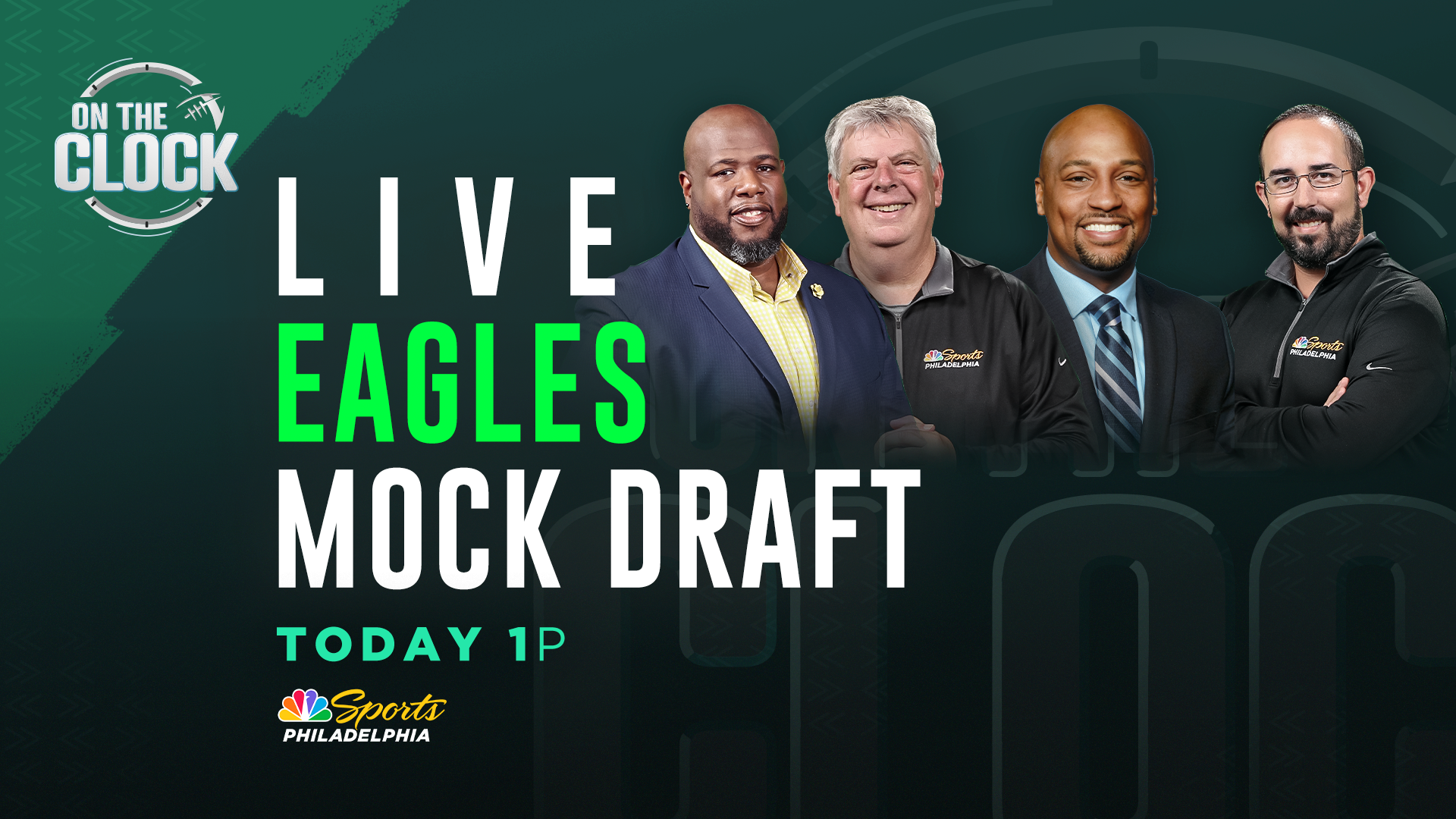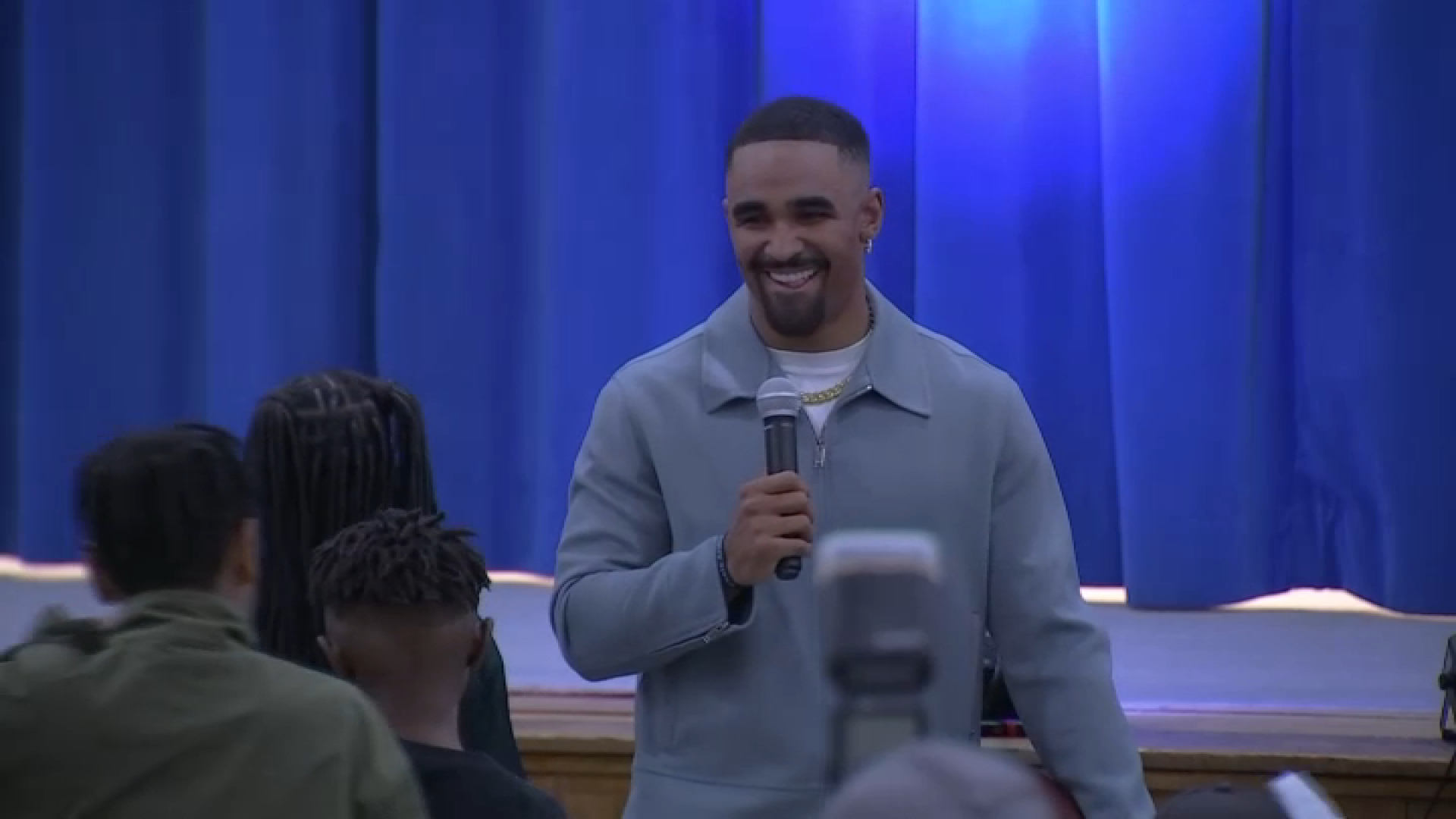At times this season, while Eagles cornerbacks were struggling mightily, fans might have thought to themselves, “If only they had a second-round cornerback with some promise that could be groomed into a real player.”
After just one season, the Eagles determined Eric Rowe wasn’t that guy.
That’s why they traded him to the Patriots for a 2018 conditional fourth-round pick before the season started. Rowe went on to start seven games for the 14-win Patriots and will play in this postseason, while the Eagles are left searching for answers at corner, which might be their biggest position of need.
So nearly four months later, why did the Eagles trade Eric Rowe?
“When we sat down and discussed the offer, we really started thinking about as we sat at that time, the likelihood that we’d sign him to an extension,” Eagles vice president of football operations Howie Roseman said Wednesday. “We want to build this team with some continuity. We felt at that time, we weren’t going to sign him to an extension. And to be able to get that value for him and possibly add someone who would be here for a longer period of time, made sense for where we were.”
With the Patriots, Rowe has played significantly lately, but still played just 43 percent of their total defensive snaps. In order for that fourth-round pick to become a third-rounder in 2018, Rowe needed to play 50 percent of the Patriots’ snaps in 2016 or 2017. So that’s a possibility next season.
As a rookie in 2015, Rowe played in all 16 games and started five after the Eagles used a second-round pick on him. At times, he showed real promise, but apparently not enough.
NFL
That one season, combined with the offseason, was enough to let the Eagles know Rowe wasn’t a part of their future, even though he was under contract through the 2018 season and wouldn’t have even been eligible for a contract extension until after the 2017 season.
“We did make that determination on the defense that we have, the scheme that we have,” Roseman said. “And after talking about our corner position with the coaches, we were concerned about getting the same value if it was the same situation going forward and obviously you can only deal with the information you have at the time.”
In hindsight, the decision to trade Rowe is a questionable one. So was the decision to extend Vinny Curry at the price they did.
In the offseason, Curry signed a five-year, $46.25 million contract extension, before becoming a rotational player again and playing just 42.6 percent of defensive snaps in 2016.
“In terms of Vinny, Vinny continued to get better in this scheme,” Roseman said. “He’s moved around a lot. He’s been in a lot of different schemes. We think he’s going to continue to get better. We’re real excited he’s on this football team.”
It wasn’t just Curry who received a contract extension during the offseason. So did Fletcher Cox, Lane Johnson, Zach Ertz, Brent Celek, Darren Sproles and Malcolm Jenkins.
Last year, despite some of the splashes the Eagles made in free agency, Roseman continued to say the most important moves the team made was to re-sign its own players. On Wednesday, he said if they didn’t do that, the Eagles would be looking at players like Cox, Jenkins, Sproles and Ertz set to become free agents. “We needed to add to the talent base, not start subtracting [from] it,” he said.
But sometimes the desire to keep those players can cloud judgment. Roseman admitted as much Wednesday.
“Yes, I think there is that danger, and I think that's another one of the values that you have by bringing people outside this organization to look at your roster and to be able to give you different perspective, because we're human,” said Roseman, who was probably talking about the addition of personnel man Joe Douglas (see story). “And there's no doubt that just like your kids, you want to see your own players succeed.
“I think we have that balance now to make sure that we have a good way of making these decisions and seeing it through a different lens.”


